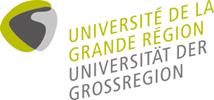Studiengang im Überblick
| Abschluss | Master of Science |
| Regelstudienzeit | Program Duration: 3 Semester |
| Studienbeginn | Semester Start: April 1 for summer semester, October 1 for winter semester |
| Bewerbungsfrist | Application Deadline: Janauary 15 for summer semester, July 15 for winter semester |
Neural Engineering
The master’s program “Neural Engineering” provides detailed knowledge of interfaces between the human neural system and technology applications. In particular, this applies to the fields of biosignal and image processing for diagnostics, control of human-technology interfaces (e.g., brain-computer interfaces), as well as to intraoperative neuromonitoring devices and electrically active implants like cochlear implants.
Berufsperspektiven und Karriere / Career Perspectives
Graduate students of the Neural Engineering program can participate in international research projects. This gives our students an early opportunity for active participation in the scientific community. In these projects our students acquire essential scientific knowledge and social skills for future leadership positions. The international orientation of the Neural Engineering program allows our students to establish international contacts in early career stages and gain confidence on the global stage.
Studienverlauf / Course of Study
First semester
The curriculum of the first semester includes the basics of neural and cognitive systems - in particular auditory processing and perception -, biomedical signal and image processing, as well as the practical manufacture of active implants using microsystem technologies.
Second semester
The second semester imparts expertise of neural signal analysis and mathematical modelling of neuronal activity. Additionally the courses intensify the knowledge of clinical neurophysiology and neuroprosthetics. Students acquire fundamental knowledge of risk management and biocompatibility, particularly with regard to implantable systems
The compulsory courses are supplemented by elective modules.
All courses include a high percentage of hands-on work for consolidation and realization of imparted knowledge. The students will implement a larger project in a 9 ECTS project work module during the second semester. Student projects and theses can be carried out at our labs or with one of our external collaboration partners (e.g., Bosenberg-Clinics, Fraunhofer Institute for Biomedical Engineering, Saarland University Hospital). Moreover, students can apply for a practical internship with one of our collaboration partners abroad. In this way, students will reinforce their acquired skills and deal with real-world research or clinical problems. In all cases, the supervising Professor and other academic staff will provide intensive guidance. Whenever possible, highly qualified guest lecturers will contribute to research and teaching.
Master-Thesis
The third semester is devoted to the Master’s thesis which can expand the winter semester project work or can be authored externally. The results of the Master’s project will be presented in a seminar session. Publication of this work is encouraged, and past thesis work has frequently been published in scientific journals and/or presented at relevant international conferences.
Zugangsvoraussetzungen / Prerequisites
Academic admission requirements include a Bachelor’s degree or Diploma (UAS or University) in Biomedical Engineering, Electrical Engineering, Mechanical Engineering, Computer Science and related fields (210 ECTS). If you have completed a six semester Bachelor’s programme (180 ECTS), you are required to pass selected modules from the htw saar Biomedical Engineering Bachelor's programme with a total of 30 ECTS points.
Applicants should have excellent grades and a sound background in engineering science. Basic knowledge of anatomy and physiology of the nervous system is recommended. Interest in research-oriented projects is presumed. All our courses are taught as a block.
The prerquisites can also be found in the attachment to the htw saar study- and examination regulations (in German only):
Die Zugangsvoraussetzungen finden Sie in der Anlage zur Allgemeinen Studien- und Prüfungsordnung.
Inhaltliche Fragen zum Studiengang
Ingenieurwissenschaften
Standort
htw saarGoebenstraße 40
66117 Saarbrücken
Raum 6214
Ansprechpartnerin im Sekretariat
Ingenieurwissenschaften
Standort
htw saarGoebenstraße 40
66117 Saarbrücken
Raum 2205
Fragen zur Bewerbung und Einschreibung
Standort
htw saarHaus des Wissens
Gebäude 11
Malstatter Straße 17
66117 Saarbrücken
Raum 11.01.17
Weitere Informationen
Hinweise für Bewerber/innen mit ausländischen Bildungsnachweisen
Erwerb zuzätzlicher ECTS an der htw saar (Harmonisierungssemester)


















